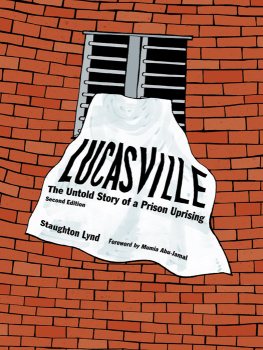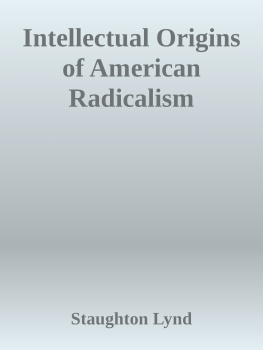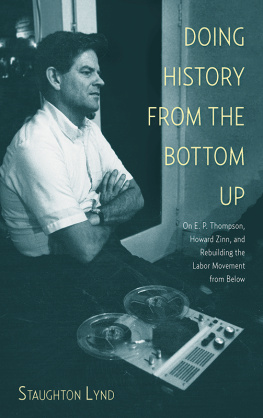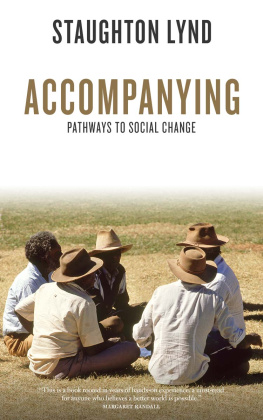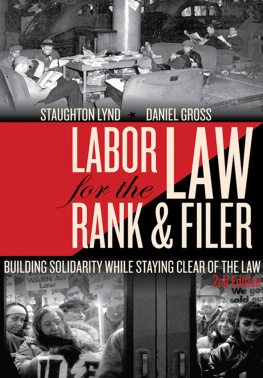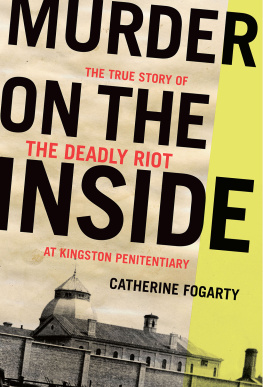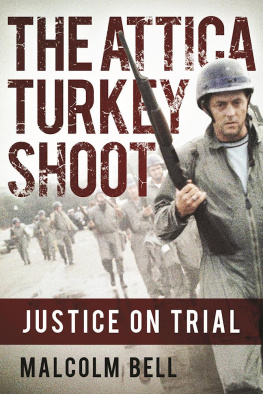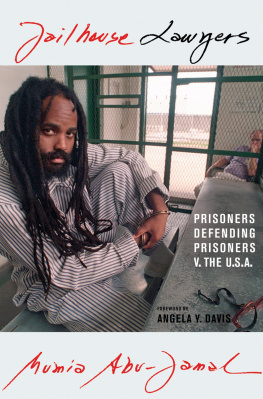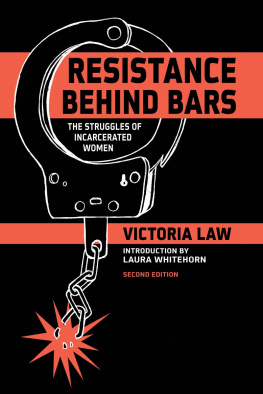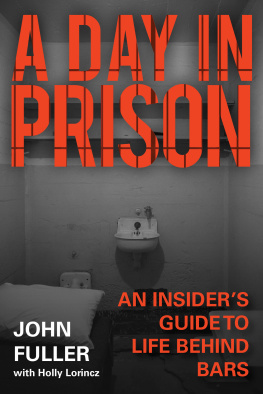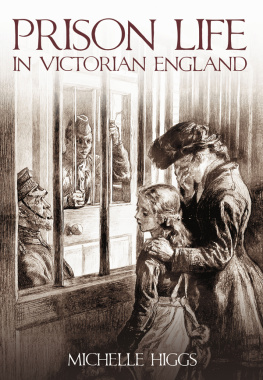
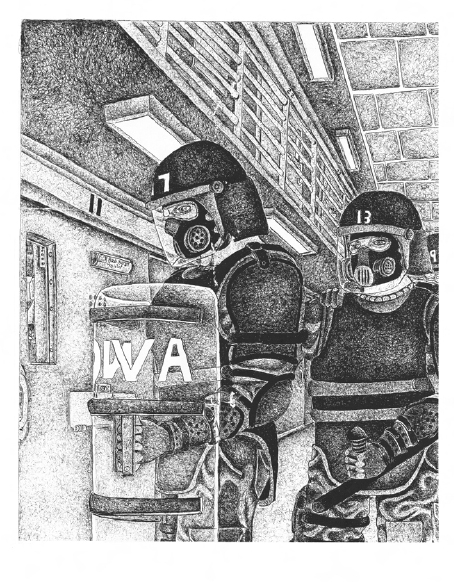
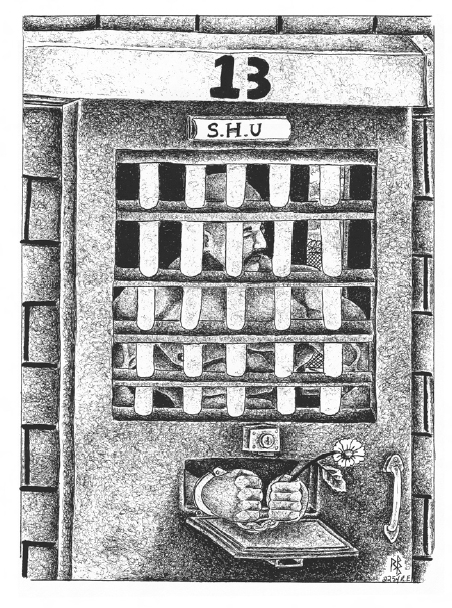

Copyright 2004, 2011 Staughton Lynd
This edition copyright 2011 PM Press
All Rights Reserved
ISBN: 978-1-60486-224-9
Library of Congress Control Number: 2010927776
PM Press
PO Box 23912
Oakland, CA 94623
www.pmpress.org
Printed in the United States on recycled paper.
Cover and new edition design: Josh MacPhee justseeds.org
Jason Robb drew the pictures on the previous pages after he, and four other participants in the April 1993 uprising at the Southern Ohio Correctional Facility in Lucasville, Ohio, who had been sentenced to death, were transferred in May 1998 to the new supermaximum security prison in Youngstown.
TABLE OF CONTENTS
FOREWORD
Mumia Abu-Jamal
L UCASVILLE .
The name is evocative. People who hear it, who may know very little about its recent role in Ohio history, seem to recognize its penal roots.
It has become a site etched upon the American mind that means prison, like Sing Sing, Marion, or Lewisburg.
The name evokes an aura of fear, of foreboding, of something strangely sinister.
That this exists is a testament to how the state has set aside sites of invisibility; where people know, in fact, very little of substance; yet know enough to know that this is something to be feared.
Yet, Lucasville exists simply because millions of people, like you, the reader, allow it to exist. It exists in your name.
Amid the silence that greets its mention, is the silence of ignorance, an ignorance that serves the interest of the state, but not of the people.
Lucasville is written to dispel that silence, to go behind the walls erected by the state (and its complicit media), to show its true face. It reveals how and why a deadly riot occurred there, which snuffed out ten lives.
Yet, there is a reason why Lucasville is not the latter-day equivalent of Attica. The five men who are the focus of this work (who have been called the Lucasville Five) worked, against great odds, to prevent an Attica (where over thirty men perished when the state unleashed deadly violence against the hostages taken, and falsely blamed it on prisoners). They sought to minimize violence, and indeed, according to substantial evidence, saved the lives of several men, prisoner and guard alike.
Yet, as the saying goes, no good deed goes unpunished.
The record reflects that these five men couldve been any five men, drawn from the burgeoning, overcrowded population of Lucasville. Why these five?
They didnt snitch. Or, to be more precise: they didnt lie.
Was the state actually soliciting lies when they talked to prisoners? According to the sworn affidavit of one John L. Fryman, two members of the Ohio State Highway Patrol made it abundantly clear what they were looking for when they came upon him as he lay, wounded, in the SOCF prison infirmary:
They made it clear that they wanted the leaders. They wanted to prosecute Hasan, George Skatzes, Lavelle, Jason Robb, and yet another Muslim whose name I dont remember. They had not yet begun their investigation but they knew they wanted these leaders. I joked with them and said, You basically dont care what I say as long as its against these guys. (From Chapter 5)
Several prisoners reported similar conversations. They learned to say what those guys wanted to hear. And the Lucasville Five were born.
What makes them remarkable is not just what they did in the hours of conflict and chaos (although, considering the possible alternative, it is indeed remarkable). They calmed men down, and demonstrated that the uprising was not racially motivated. They tried to provide mixed and collective leadership. They strove to keep the peace in a place designed for permanent turmoil. That Muslim and Aryan, Black and White, Country and Rural could see beyond these easy labels, and begin to perceive each others humanity, is, in itself, a remarkable achievement, especially when all hell is breaking loose.
They rose above their status as prisoners, and became, for a few days in April 1993, what rebels in Attica had demanded a generation before them: men. As such, they did not betray each other, they did not dishonor each other, they reached beyond their prison tribes to reach commonality.
And therein lies the rub.
For the state fears few things more than convict unity. The very premise of the prison is, in a way, a reflection of the guiding principle governing the larger society on the outside: division, conflict between races, classes, and genders. Divide and conquer.
They therefore had to make Hasan the bte noire, the boogie-man. The Leader who Created Chaos.
Secondly, George Skatzes became a Public Enemy. Why, one wonders? He wouldnt incriminate other guys. In a word, he wouldnt stand by his white-skin privilege, and dime out some brothers. The D.A. even hinted as much, telling the jury:
Mr. Skatzes had his opportunity and he chose not to take it. Had Mr. Skatzes taken it, Mr. Skatzes would be up there on the witness stand testifying and Mr. Lavelle would be sitting over there [at the defendants table]. (From Chapter 4)
George, at the time a member of the Aryan Brotherhood, had not followed the rule of white solidarity. He did not play the game.
That is his deadly crown.
One hundred and fifty years ago, a man named John Brown and a Black and White squad of armed men struck the armory at Harpers Ferry to strike a fatal blow against slavery. It is interesting that when Brown was captured and tried, he was charged with (among other things) treason.
Whom had he betrayed?
He betrayed deeply held notions of what whiteness meant.
About fifty years ago, when World War II was winding down, the U.S. government, at a military prison in France, appointed several upper-class German prisoners-of-war as guards over Americans who were being held there.
Imagine that: Nazi POWs, guarding U.S. Army prisoners, just days after they were both killing each other.
Such an historical event tells us all we need to know about class, and underlying ideology. Imagine what it meant to the German officers.
Imagine what it communicated to the American prisoners!
In prison, we see the outer society at its clearest and sharpest.
There are few illusions there.
Lucasville will hopefully destroy other illusions.
Death Row, Pennsylvania
INTRODUCTION
P ROSECUTORS HAVE CALLED IT the longest prison riot in United States history.
The uprising took place in April 1993 in Lucasville, Ohio, a small community just north of the Ohio River. Two populations, approximately equal in size, confronted one another there. On the one hand were the maximum security prisoners at the Southern Ohio Correctional Facility (SOCF), mostly black, mostly from cities like Cincinnati and Cleveland. On the other hand was the all-white population of the town. Almost everyone in Lucasville worked at the facility or knew someone who did.
In the course of the eleven-day occupation, one correctional officer, and nine prisoners were murdered by prisoners.

